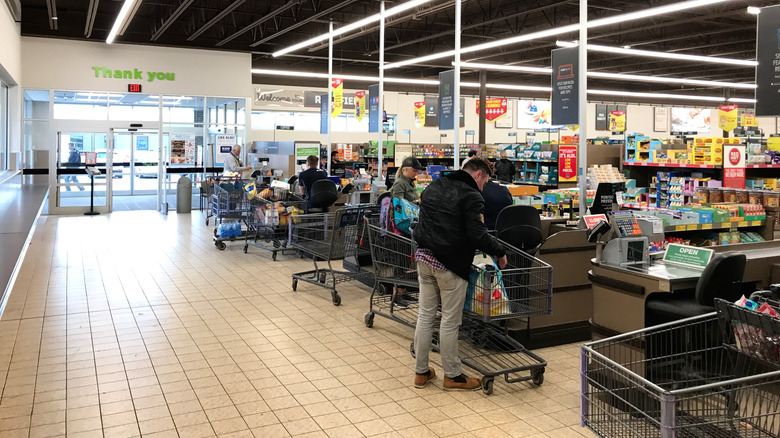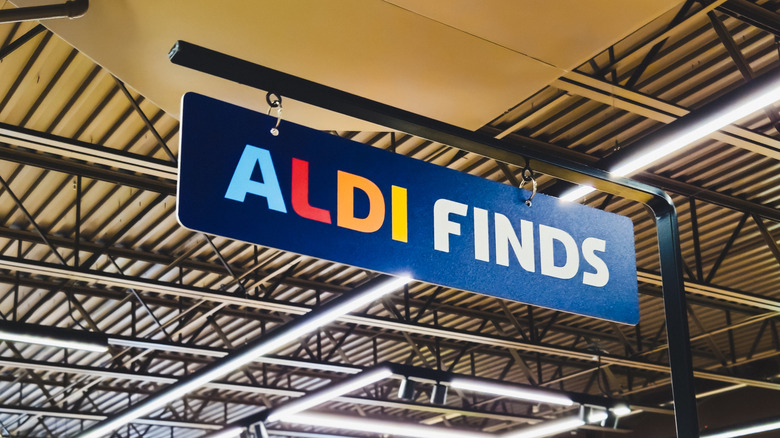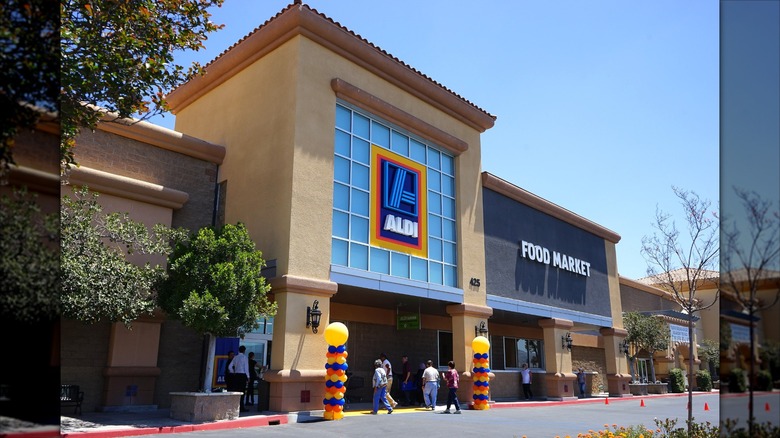2 Changes Coming To Aldi In 2026
Aldi's reputation as a one-of-a-kind grocery chain has won the store many loyal customers. Unique facets like cart rentals for a quarter and an absence of disposable shopping bags keep prices low, as does the focus on private label products manufactured exclusively for the store. In fact, Aldi estimates that over 90% of the goods sold in its locations are exclusive brands, many of which have established cult followings among shoppers. Not many grocery chains have their own fan club complete with a secret greeting to identify fellow devotees (try shouting "caw caw" the next time you're in the Finds aisle), but Aldi inspires lots of enthusiasm.
You'd think the chain would be reluctant to make big changes based on the good will it receives from consumers, but that's not exactly the case. Aldi frequently looks towards the future and regularly elicits feedback from shoppers to help improve the experience it offers. This has led to some major developments that technically kicked off this year but will be expanded or completed in 2026. For instance, Aldi is making a substantial but sensible modification to how its private label goods are branded. The chain is also eyeing a huge expansion campaign with a focus on increasing its locations in the Southeastern and Western portions of the country. Many core elements of Aldi shall remain, but these updates show that the store isn't resting on its laurels.
Rebranding of beloved store-exclusive items
You almost never see name-brands at Aldi, as the chain focuses its attention on private label products. These goods are cheaper partly because they don't incur the same costs as big brands, but they also benefit from the store's comprehensive research and development process. People who regularly shop there are no doubt familiar Aldi labels like Clancy's, Mama Cozzi's, Barissimo, and Specially Selected. However, the store is currently updating product packaging to make for a more cohesive experience. Many products at the chain will now bear its logo exclusively to help shoppers readily identify them. Store brands that have really resonated with shoppers will keep their current names but will bear "an ALDI Original" on the packaging.
In a press release announcing the rebranding effort, Aldi CEO Atty McGrath stated, "Now, it's easier than ever for shoppers to instantly spot the value and quality only ALDI can deliver." McGrath also hoped that "[Aldi's] updated packaging will give shoppers yet another reason to reach for our products first." According to Scott Patton, chief commercial officer at Aldi, the store "drew so much inspiration from our fans" while revamping its packaging. For instance, Kirkwood Breaded Chicken Fillets will now be known as Red Bag Chicken in a nod to the product's shopper-given moniker. Customers may notice new packaging already popping up in stores, but the full rollout will take some time to complete.
Massive store expansion
Way back in 1976, Aldi opened its first location in the U.S. (the grocer had been operating in Germany since 1961). Since that time, the store has expanded to a whopping 2,400 locations throughout 38 states, with no signs of slowing down. As part of an expansive growth initiative, the chain is in the process of opening 225 additional stores. This entails establishing new locations and converting existing retail spaces (including former Winn-Dixie and Harveys locations) into Aldi stores. In addition to its Southeastern takeover, Aldi has plans to add more stores in Western states like Arizona, California, and Nevada, which is home to new Las Vegas locations. Elsewhere in the nation, the chain will make its Times Square debut in 2026.
Recent and upcoming store additions are part of Aldi's grand plan to increase its presence over the next few years. The chain claims the expansion was triggered by outcry from Aldi fans who wanted neighborhood locations where they live, and it's clear to see why a retailer known for its affordable, high-quality products might elicit such demand. Beef, dairy products, and other grocery essentials are expected to rise in price this fall, so consumers are naturally on the lookout for budget-friendly goods.


